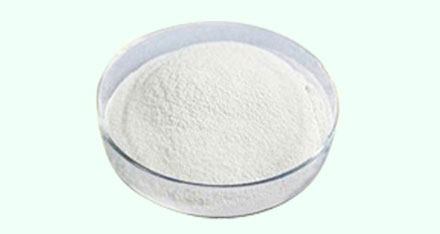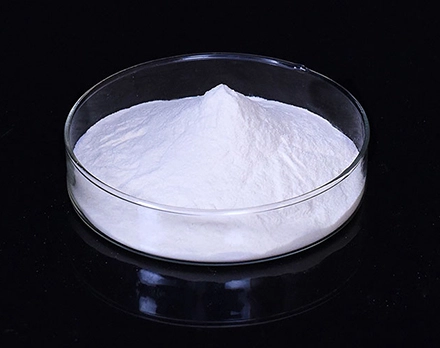Important Functions of Fructooligosaccharides
Ⅰ. What is oligofructose fos?
Fructooligosaccharides are naturally active substances. A special component of soluble dietary fiber, a carbohydrate that cannot be digested by intestinal digestive enzymes.
It is often mentioned that oligofructose powder is a prebiotic, so what is a prebiotic? In theory, any substance that reduces existing harmful bacteria and promotes health-promoting bacteria or activities can be called prebiotics. It is generally believed that prebiotics provide "food" for probiotics, which can be decomposed and absorbed by beneficial bacteria in the intestinal tract and promote the growth and reproduction of beneficial bacteria. Fructooligosaccharides are one of the most excellent representatives of prebiotics.
Ⅱ. The function of fructooligosaccharides
Fructooligosaccharides powder plays an important role in regulating intestinal flora, strengthening the immune system, and promoting mineral absorption. Next, let's understand the first important function of fructooligosaccharides - regulating the intestinal flora. Fructooligosaccharides can significantly increase the number of beneficial bacteria such as bifidobacteria in the intestinal flora, and significantly reduce the number of harmful bacteria such as Clostridium perfringens.
1. Promote the growth of beneficial bacteria
The growth of beneficial bacteria in different time periods and different intakes after ingesting fructooligosaccharides. The intake of fructooligosaccharides can significantly increase the number of bifidobacteria, and with the increase in the intake of fructooligosaccharides, the bifidobacteria will also increase significantly.
2. Inhibit the growth of harmful bacteria
The mechanism by which oligofructose inhibits the growth of harmful bacteria is that oligofructose can promote the growth of beneficial bacteria such as bifidobacteria, and then the beneficial bacteria can produce short-chain fatty acids, and short-chain fatty acids can inhibit the growth of harmful bacteria in the intestinal tract.
With the intake of fructooligosaccharides, harmful bacteria (C. perfringens) decreased while beneficial bacteria (Bifidobacterium) increased.
3. Improve intestinal microecology
Gut microorganisms account for 78% of the total microbial biomass in the human body, so it is called the largest micro-ecosystem in the human body. And fructooligosaccharides have a very significant "two-way" regulation of intestinal flora.
4. Boost the immune system
The regulation of immune function is another important biological effect of fructooligosaccharides, which is related to the increase of bifidobacteria by fructooligosaccharides. The cell walls and secretions of bifidobacteria can produce a large number of immune substances, such as immunoglobulins, which can prevent bacteria from attaching to the host intestinal mucosal tissue by 7 to 10 times that of other immunoglobulins. A large number of bifidobacteria can also strongly stimulate intestinal immune cells, increase the number of antibody cells, activate the activity of macrophages, and strengthen the body's immune system.
5. Promote mineral absorption
Fructooligosaccharides supplement can significantly promote the transport and absorption of calcium by directly acting on the intestinal mucosal epithelial tissue. On the one hand, fructooligosaccharides can promote calcium absorption by increasing the level of calcium-binding protein in the intestinal mucosa; on the other hand, fructooligosaccharides are fermented by bacteria in the large intestine to form L-lactic acid, which can dissolve minerals such as calcium, magnesium, and iron, and promote the human body. Absorption of minerals.
-
Inulin
-
Polydextrose
-
Resistant Dextrin
- Trehalose
- Resistant Dextrin(Soluble Corn Fiber)
- Resistant Dextrin(Soluble Corn Fiber)(Powder)
- Resistant Dextrin(Soluble Tapioca Fiber)(Powder)
- Resistant Dextrin(Soluble Tapioca Fiber)(Liquid)
- Resistant Maltodextrin Powder
- Resistant Maltodextrin Powder (Liquid)
- Organic Resistant Dextrin Powder (Corn Type) 70%
- Organic Resistant Dextrin Powder (Corn Type) 90%
- Organic Resistant Dextrin Powder (Tapioca Type) 70%
- Organic Resistant Dextrin Powder (Tapioca Type) 90%
- Organic Resistant Dextrin Syrup (Corn Type) 70%
- Organic Resistant Dextrin Syrup (Corn Type) 90%
- Organic Resistant Dextrin Syrup (Tapioca Type) 70%
- Organic Resistant Dextrin Syrup (Tapioca Type) 90%
- Organic Resistant Maltodextrin Powder (Corn Type) 70%
- Organic Resistant Maltodextrin Powder (Tapioca Type) 70%
- Organic Resistant Maltodextrin Syrup (Corn Type) 70%
- Organic Resistant Maltodextrin Syrup (Tapioca Type) 70%
- Organic Soluble Corn Fiber Powder 70%
- Organic Soluble Corn Fiber Powder 90%
- Organic Soluble Corn Fiber Syrup 70%
- Organic Soluble Corn Fiber Syrup 90%
- Organic Soluble Tapioca Fiber Powder 70%
- Organic Soluble Tapioca Fiber Powder 90%
- Organic Soluble Tapioca Fiber Syrup 70%
- Organic Soluble Tapioca Fiber Syrup 90%
- Resistant Dextrin Powder (Corn Type) 70%
- Resistant Dextrin Powder (Corn Type) 90%
- Resistant Dextrin Powder (Tapioca Type) 70%
- Resistant Dextrin Powder (Tapioca Type) 90%
- Resistant Dextrin Syrup (Corn Type) 70%
- Resistant Dextrin Syrup (Corn Type) 90%
- Resistant Dextrin Syrup (Tapioca Type) 70%
- Resistant Dextrin Syrup (Tapioca Type) 90%
- Resistant Maltodextrin Powder (Corn Type) 90%
- Resistant Maltodextrin Powder (Tapioca Type) 90%
- Resistant Maltodextrin Syrup (Corn Type) 90%
- Resistant Maltodextrin Syrup (Tapioca Type) 90%
- Soluble Corn Fiber Powder 70%
- Soluble Corn Fiber Powder 90%
- Soluble Corn Fiber Syrup 70%
- Soluble Corn Fiber Syrup 90%
- Soluble Tapioca Fiber Powder 70%
- Soluble Tapioca Fiber Powder 90%
- Soluble Tapioca Fiber Syrup 70%
- Soluble Tapioca Fiber Syrup 90%
-
Dioscorea Opposita Dietary Fiber
-
Wheat Dietary Fiber
-
Oat Dietary Fiber
-
Polydextrose Powder (Conventional Type)
-
Polydextrose Powder (Special Type)
-
Polydextrose Powder (Sugar Free Type)
-
Polydextrose Powder (Type II)
-
Polydextrose Powder (Type III)
-
Polydextrose Syrup (Conventional Type)
-
Polydextrose Syrup (Refined Type)
-
Polydextrose Syrup (Special Type)
-
Polydextrose Syrup (Standard Type)
-
Polydextrose Syrup (Sugar Free Type)
- Fructo Oligosaccharide
-
Malt Oligosaccharide
- Isomalto-oligosaccharide 900 Powder
- Isomalto-oligosaccharide 900 Powder(Corn)
- Isomalto-oligosaccharide 900 Powder(Tapioca)
- Isomalto-oligosaccharide 900 Syrup
- Isomalto-oligosaccharide 900 Syrup(Tapioca)
- Isomalto-oligosaccharide 900 Liquid (Corn)
- Isomalto-oligosaccharide 900 Liquid (DP3)
- Isomalto-oligosaccharide 900 Liquid (Tapioca)
- Isomalto-oligosaccharide 900 Powder (Corn)
- Isomalto-oligosaccharide 900 Powder (DP3)
- Isomalto-oligosaccharide 900 Powder (Tapioca)
- Organic Isomalto-oligosaccharide 900 Liquid (Corn)
- Organic Isomalto-oligosaccharide 900 Liquid (DP3)
- Organic Isomalto-oligosaccharide 900 Liquid (Tapioca)
- Organic Isomalto-oligosaccharide 900 Powder (Corn)
- Organic Isomalto-oligosaccharide 900 Powder (DP3)
- Organic Isomalto-oligosaccharide 900 Powder (Tapioca)
- Xylo-oligosaccharide
- Galacto-oligosaccharide
-
Mannan Oligosaccharide
-
Isomaltulose Powder
-
Saigao Stachyose






